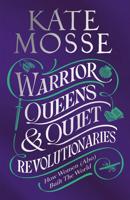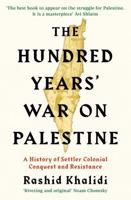Publisher's Synopsis
RUSSIA AND THE RUSSIANS RUSSIA and THE RUSSIANS Edward Crankshaw NEW YORK THE VIKING PRESS 1948 CONTENTS I. The World and the U. S. S. R. - 3 II. The Mighty Plain 15 1. The Spirit of the Plain 17 2. The Plain and History 33 3. The People of the Plain 57 IIL Who Are These Grey Masses 73 1. The Living Image 75 2. The Three Revolutions 91 3. Government, Police, and People 108 4. The Price of Victory 138 IV. The Road to Life 15 1. The Survivors 155 2. The Road to Life 169 V. The U. S. S. R. and the World 199 I THE WORLD AND THE U. S. S. R. THE WORLD AND THE U. S. S. R. IN a small book about Russia, written when the war was at its height, I undertook a brief survey of the history of Anglo-Russian relations from the sixteenth century, when they were first inaugurated, to the Intervention, when they temporarily ceased, in order to indicate, very lightly, certain lessons which could be learnt with profit for the future. The future, by which I then meant the end of the war in Europe and Asia, is now the present, and the lessons have not been learnt. They will not be repeated here and I refer to that earlier book only because it has a direct bearing on this one, which is neither more nor less than an attempt to produce a picture of the Russian people, their culture, and their political ideas, against the back ground of the unchanging conditions of their landscape and their climate. Something of this kind seems to me badly needed to serve as a firm anchorage for our thoughts and speculations about the impact of Russia upon the rest of the world. In that earlier book, after considering the monotonous and gloomy regularity with which the birth and recurrent rebirth of good-will between our two countries has been succeeded by the resurrection of suspicion, hardening quickly into hostility, open or concealed, and after some attempt to suggest reasons for this dire and inflexible rhythm, I tried to show that if we were not very careful we should find the same thing happening at the end of the war which then seemed a long way off, and I went on to suggest that one of the first steps we could take to strengthen ourselves against the inevitable shock of disillusion ment to come was to disillusion ourselves a little in advance and try to think of the Russians as ordinary human beings instead of as a nation of masked demigods. I was writing in 1943, shortly after the victory at Stalingrad, when the agitation for the so-3 4 Russia and the Russians called Second Front was at its height both in Moscow and in London, and when we, the average Englishman or American, were extending to Russia a warmth and passion of admiration unprecedented in the history of alliances. Nothing Russia did was wrong nothing we did was right. To return from Moscow to London at that time was an odd and unmanageable experience...






